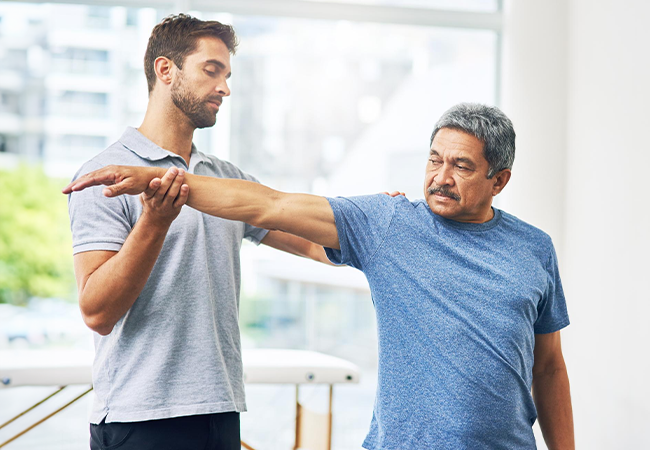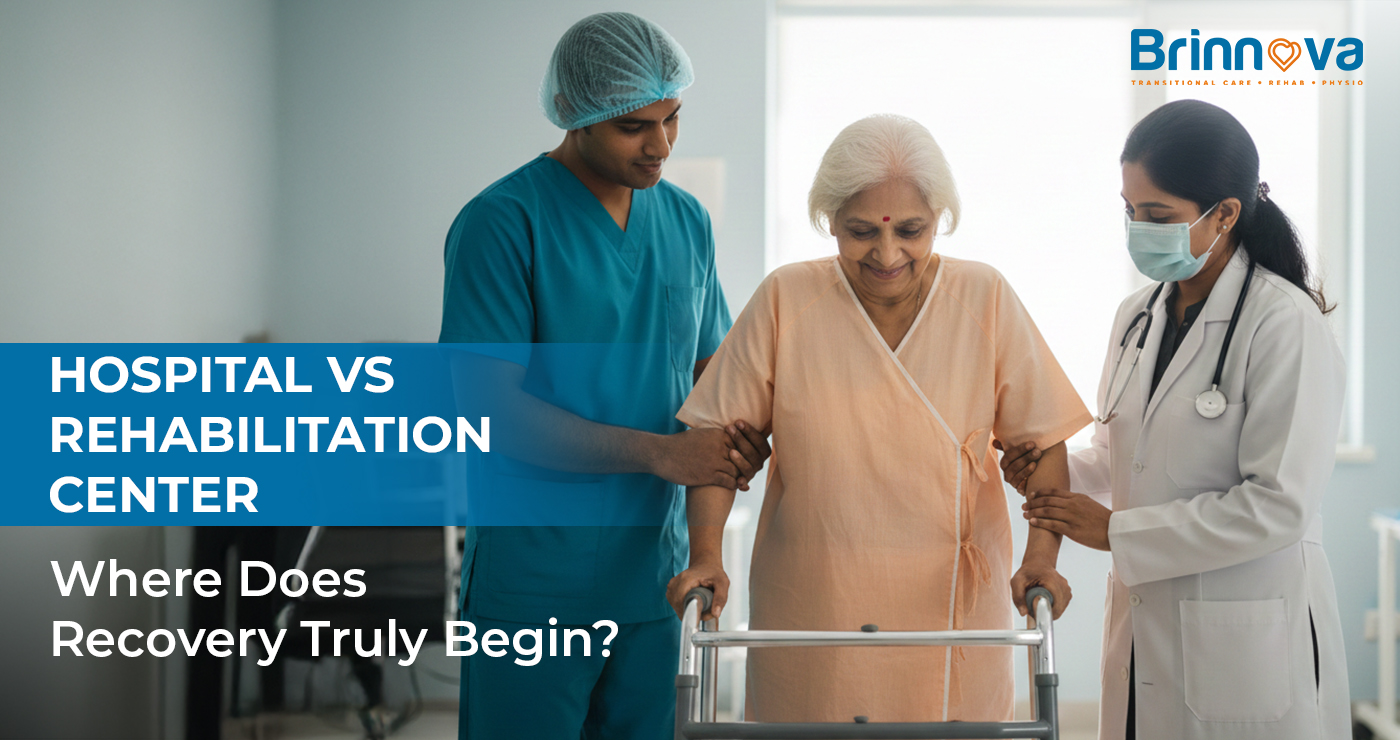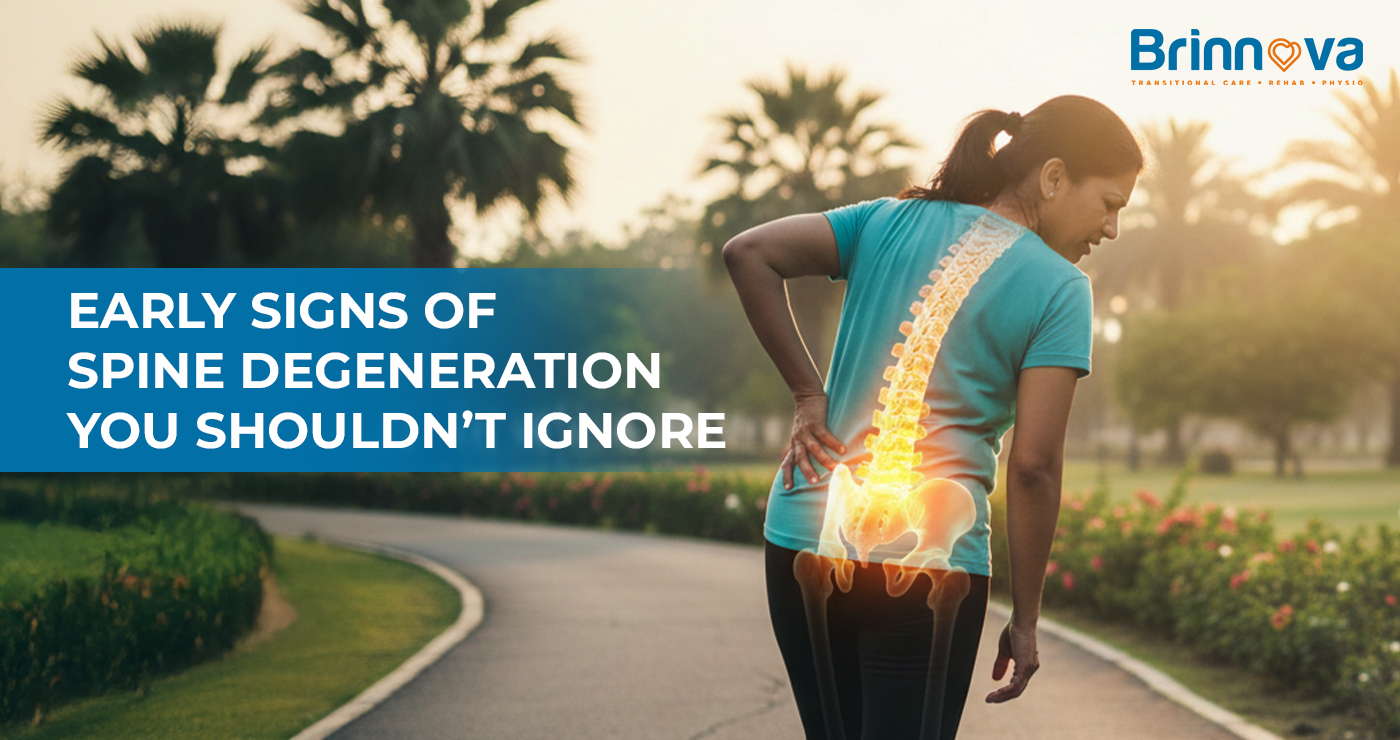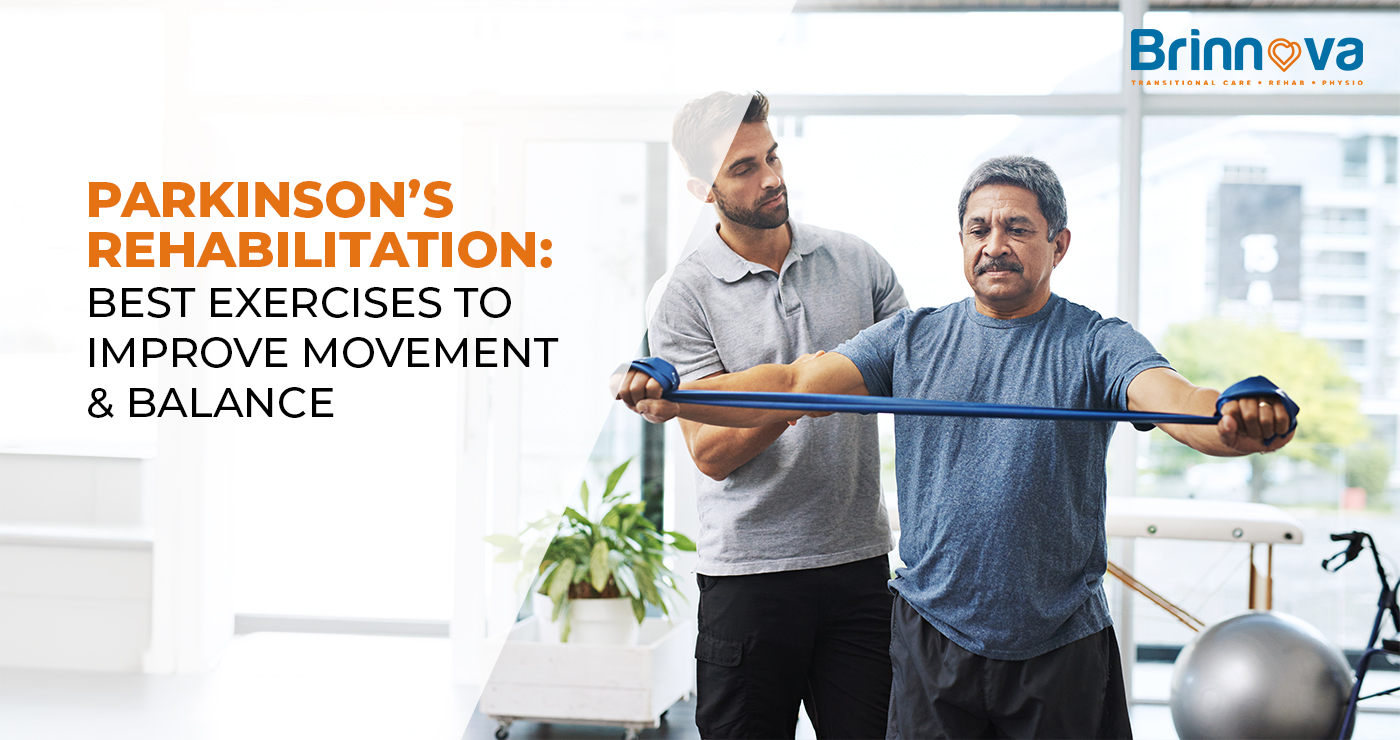How Geriatric Rehabilitation Can Improve Quality of Life for Seniors
Old age creates different physical and cognitive challenges that make basic everyday functions complicated for senior citizens. Geriatric rehabilitation for seniors fulfils an essential purpose in patient care. The combination of specific treatments with medical care enables seniors to recover their movement abilities and achieve self-sufficiency and self-assurance. Rehabilitation practices improve both health quality and overall life satisfaction even when treating injuries, surgical needs, or chronic disease management.
The Importance of Geriatric Rehabilitation
The primary purpose of geriatric rehabilitation for seniors is to provide operational capabilities to allow them to remain physically active. People must prioritise geriatric rehabilitation due to their current condition.
- A person's recovery process after surgery involves replacing hips and knees and additional orthopaedic operations.
- Chronic diseases like arthritis, osteoporosis, and Parkinson’s
- Neurological conditions such as stroke and dementia
- Despite their age, seniors encounter mobility problems because of muscle weakness that comes with ageing.
- Senior individuals typically experience frequent falls together with bone fractures.
Therapeutic interventions following rehabilitation protocols enable senior citizens to heal more quickly and minimise their discomfort perceptions, along with decreasing potential medical complications.
Types of Geriatric Rehabilitation
The approach to geriatric rehabilitation for seniors follows the individual requirements of each senior citizen. The most common types include:
1. Geriatric Rehabilitation Physiotherapy
- Improves strength, flexibility, and balance
- Geriatric rehabilitation produces pain relief for patients who have chronic diseases.
- The protocol improves motion ability, thus reducing accidental injuries and falls.
2. Occupational Therapy
- Helps seniors regain independence in daily activities
- Focuses on improving hand coordination and fine motor skills
- Adapts living spaces for safer, easier movement
3. Speech and Swallowing Therapy
- Assists those with speech or swallowing difficulties
- Commonly required after a stroke or due to neurological conditions
4. Cognitive Rehabilitation
- Supports memory improvement and mental clarity
- Beneficial for dementia or Alzheimer’s patients
Benefits of Geriatric Rehabilitation for Seniors
Geriatric rehabilitation for seniors provides multiple health advantages to these senior citizens that lead to a better state of well-being.
1. Restores Independence
The rehabilitation process enables seniors to restore their daily performing abilities, which lessens their need for care assistance. By regaining control over essential activities like dressing, bathing, and meal preparation, seniors experience greater self-reliance.
2. Enhances Mobility and Reduces Falls
Older people who participate in balance training with strength-building exercises and mobility aid usage experience decreased vulnerability to falls, which commonly results in older adult injuries. Falls are a major cause of hospitalisation in seniors, and through rehabilitation, they learn to move more safely, improving their coordination and confidence when walking.
3. Manages Chronic Diseases
Individualised rehabilitation treatments specifically address the symptoms of arthritis and Parkinson's disease along with osteoporosis to enhance mobility for elderly patients. Regular physical therapy sessions help alleviate joint stiffness, improve muscle strength, and slow the progression of degenerative conditions.
4. Improves Mental Health
Participating in rehabilitation therapy builds patient confidence and lowers depression while improving mental abilities, including dementia treatment outcomes for senior patients who also face post-stroke complications. Engaging in rehabilitation helps seniors feel more capable and positive about their recovery.
5. Pain Reduction
The pain management methods provided by geriatric rehabilitation physiotherapy allow seniors to receive effective pain control through alternative methods that limit the need for medication. Techniques such as hydrotherapy, massage, electrical stimulation, and therapeutic exercises help reduce pain naturally.
Choosing a Geriatric Rehabilitation Centre
Finding a suitable rehabilitation facility remains essential for patients to achieve proper recovery results. The selection of a geriatric rehabilitation center in Hyderabad should consider the following points:
- Elderly care professionals with proper qualifications and extensive experience must join the rehabilitation team.
- The centre should deliver programs that assist patients through mobility improvement, cognitive enhancement, and disease treatment management.
- Every senior should get specific treatment strategies that meet the requirements of their health status and healing process.
- The rehabilitation centre must have safety systems to adopt measures against falls and injuries.
Home-Based vs Centre-Based Rehabilitation
Medical rehabilitation takes place either within domestic settings or institutionally structured facilities. Both have their advantages:
1. Home-Based Rehabilitation
- Ideal for seniors with mobility restrictions
- Comfortable and familiar surroundings
- Requires family or professional caregiver support
2. Centre-Based Rehabilitation
- Access to specialised equipment and expert supervision
- Faster recovery due to structured therapy sessions
- Social interaction opportunities with other seniors
Enrolment in a geriatric rehabilitation center in Hyderabad yields substantial benefits for the advanced care needs of senior citizens.
Role of Family and Caregivers
The rehabilitation process receives essential backing from family members. Their involvement ensures:
- Regular follow-ups with therapists
- The encouragement and motivation of active behaviours in older adults
- The program provides help with exercise performance both within hospital facilities and at-home settings.
- The availability of emotional support creates confidence while strengthening the overall well-being of patients.
Brinnova Care: The Best Geriatric Rehabilitation Center in Hyderabad
At Brinnova Care, we are dedicated to enhancing the quality of life for seniors through expert geriatric rehabilitation. Our specialised care focuses on restoring independence, managing chronic conditions, and preventing disabilities—empowering older adults to live healthier, more active lives. With personalised physiotherapy and tailored rehabilitation programs, we provide the support seniors need to regain strength, mobility, and confidence. Trust Brinnova Care for compassionate, expert-driven recovery that prioritises well-being at every step.




